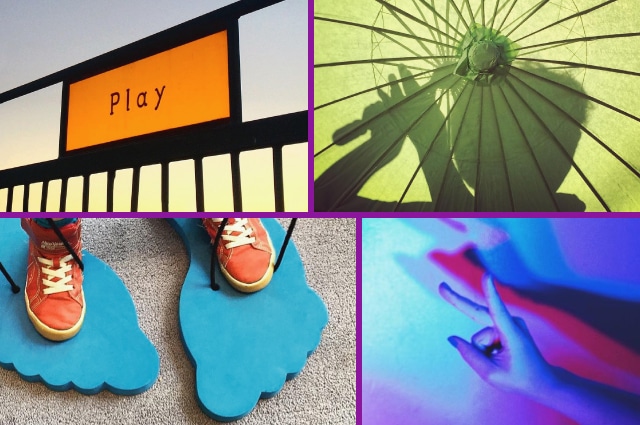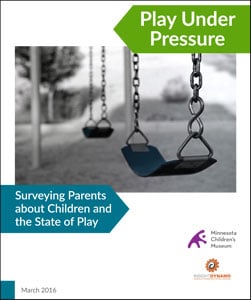Parents Agree: Let’s Make More Time for Play

Does your family have a hectic schedule?
Do you wish you could find more time for your children to run around and play?
Does it seem like you played more when you were a kid?
If you answer “Yes” to any of those questions, you’ve got a lot of company. Minnesota Children’s Museum surveyed more than 1,000 parents and other caregivers and found that many families are often simply too busy to play.
Here are some of the survey results:
- Children don’t get enough time to play – 70 percent agree
- I played more when I was a child – 82 percent agree
- Children spend too much time with screens/devices – 88 percent agree
- No. 1 reason most often cited for lack of play time – “Busy family schedule”
It’s not that parents don’t value play time. In fact, when we asked whether parents viewed unstructured free time as important to their child’s overall learning and development, 93 percent said “Yes.” Parents also reported seeing value in activities such as playing hide-and-go seek, making up stories and building forts.
What factors are putting a squeeze on play time? In addition to busy family schedules, the top reasons cited were lack of playmates nearby and concerns over safety when children play outside.
Other considerations: A majority of parents (62 percent) report feeling pressure to do all they can to prepare their children to excel in math, science and reading. Many parents (45 percent) said they worry their children will “fall behind” if they not involved in lessons and activities organized by adults.
The Museum’s message is this: Let’s work together to make play a priority. Let’s give children the time and space to explore, imagine, grow and follow their own interests. Let’s embrace that fact that play is essential to the healthy cognitive, social, physical and emotional development of children.
These are the key drivers of the Museum’s #PlayMoreMN movement. Minnesota Children’s Museum sees our community thriving as a happier, healthier and more innovative place through the radiant power of play.

